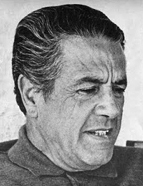

According to Dias, there are "three fundamental phases in the life of humanity": an initial phase of expansion, where man needed extensive areas to satisfy his hunger, thus dispersing across the Earth; the next phase, in the Neolithic age, beg an with agriculture, sedentarism, social stratification, the pursuit of wealth, and conflict, leading to the emergence of a culture—Greek—that brought with it higher forms of knowledge. This culture was disseminated by the Romans, who spread a superior civilisation. Finally, emerging from the ruins of the Roman Empire and the clashes with the Germanic peoples, the imposition of Christianity, serving to soften customs and bearing a human fraternity ideal. The Portuguese, as the continuators of Neolithic dynamics, which led them to expand their Empire—like the Romans—are portrayed as playing the most important role in the third, spiritual phase: the expansion of f aith (J. Dias, A expansão ultramarina portuguesa à luz da moderna antropologia [Portuguese Overseas Expansion in the Light of Modern Anthropology], 1956, pp. 150-153; J. Dias, Antropologia Cultural [Cultural Anthropology], 1965-66, pp. 163-175).
It is not possible here to offer m o re than a brief presentation of some key points of the anthropologist’s discourse, leaving aside important elements of this intellectual construction. Indeed, t hese considerations should be examined in light of both what they reveal about his personal ideology and the historical context in which his actions unfolded. In the intellectual domain, th e context in which the author operated was dominated by a slow discrediting of racial explanations of social behaviour, due to their association with Nazism and other extreme forms of racism. It was a time when Mendes Correia, the physical anthropologist hostile to miscegenation, was losing prominence in Portugal, and the relatively young and anti-racist Jorge Dias—who largely identified with American cultural anthropology, distinguished by its opposition to racism—was progressively gaining recognition. But this was also a time marked by international decolonisation and by colonial wars triggered by the Estado Novo’s opposition to the independence of the colonies. It became urgent for the Portuguese state to establish its colonisation as being radically different from others in order to justify the continuity of the Empire.
